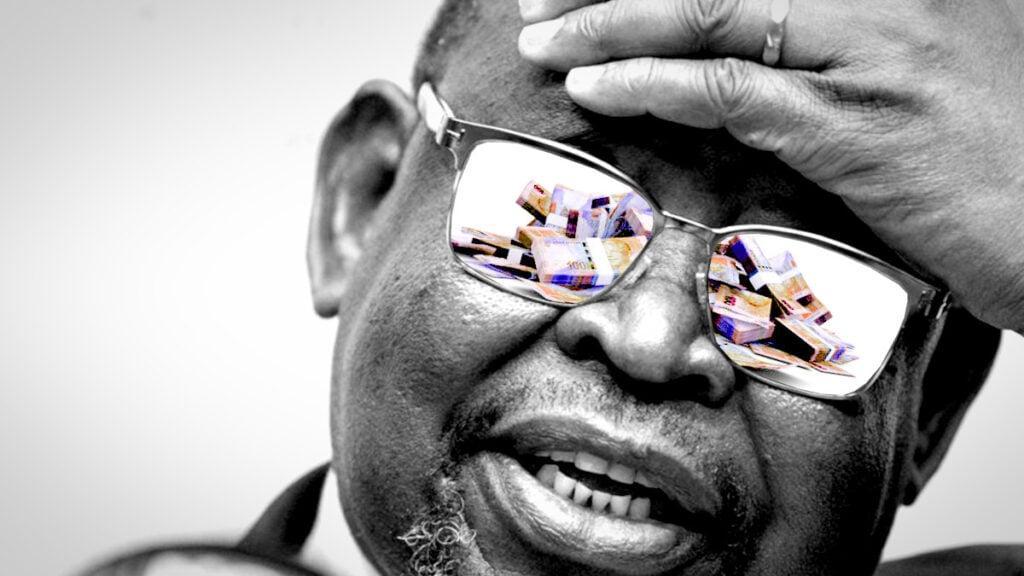Africa-Press – South-Africa. Reports this week have sparked fears that South Africa is at risk of being cut off from the global Society for Worldwide Interbank Financial Telecommunication (SWIFT) system.
The concerns are rooted in reported comments made by Finance Minister Enoch Godongwana at a closed meeting with South Africa’s banks this past week, where he reportedly expressed worry about being cut off from the system through US-led sanctions against the country.
The South African Reserve Bank (SARB) has since indicated that there is no impending risk of this happening, and if there were, it would likely be targeted at individuals, rather than South Africa as whole.
This would align with a bill that is progressing through US congress which aims to review the relationship between the United States and South Africa, while also identifying certain government officials and ANC politicians to possibly sanction.
Even though the sanctions, if any materialise, would take aim at specific individuals, there are worries that the impact could be wider if any targeted individuals have ties to other companies.
Legal experts previously warned any businesses tied to persons of interest to get their affairs in order and take proactive precautions, just in case.
The risk of losing access to SWIFT has now become a central talking appoint among economists and analysts, with many warning of what it could mean for South Africa if the country lost access to the system.
The SWIFT system is a communication system that serves as the backbone of international payments. It allows thousands of banks around the world to communicate with each other to fast-track payments and ensure they are safe and secure.
The risk is that banks lose access to the channel, which then disrupts and impedes transactions, making them more cumbersome and difficult to process.
One of the most recent cases of this being used in sanctions against a country is when Russian banks were cut from the system in 2023 because of the country’s 2022 invasion of Ukraine.
According to Aluma Capital chief economist, Frederick Mitchell, the potential loss of access to the SWIFT system poses a profound threat to South Africa’s economy.
It would carry repercussions that could undermine both national stability and future growth prospects, he said.
“As a nation heavily reliant on international trade, the disruption or suspension of our connection to this vital global financial communications network would significantly impair our ability to conduct cross-border transactions.”
This would lead to ineffeciency, economic isolation, heightened volatility in the rand and likely capital flight as investors flood out of the country.
The slippery slope of losing SWIFT
Aluma Capital Chief Economist, Frederick Mitchell
Without SWIFT, South African businesses and banks would face delays in sending and receiving international payments, hampering trade flows and foreign investment, Mitchell said.
“This disruption would likely trigger a sharp depreciation of the Rand against the US dollar, given the sudden loss of foreign exchange liquidity and confidence.”
A weaker rand, in turn, would make imports more expensive, fuelling inflation and placing additional pressure on consumers already struggling with high living costs.
As imported goods become more costly, inflationary pressures would intensify, complicating the Reserve Bank’s ability to maintain price stability—one of its core mandates.
The problems would then likely snowball as the Reserve Bank would have to tighten monetary policy to curb inflation; higher interest rates would suppress investment and consuption; and the economy would stall and stagnate further.
“This scenario of stagflation becomes a tangible and dangerous risk, characterised by stagnant growth, persistently high inflation, and rising unemployment,” Mitchell said.
As South Africa’s economy becomes isolated, investors will likely seek safer havens and flee, destabilising the economy even further.
The resulting uncertainty would deter foreign direct investment, undermine the confidence of trading partners, and intensify economic hardship for South Africans.
While the risk of this actually happening appears low, Mitchell said that the South African government needs to tread carefully and responsibly in navigating the various risks and threats bearing down on the country.
He said that it the state needs to engage in “proactive diplomacy” and negotiate in good faith with Western nations, alongside implementing strategic economic policies, to protect South Africa’s financial system from external shocks and sanctions.
“Failing to do so could lead South Africa toward stagnation and stagflation an outcome that no responsible leader or citizen should accept,” he said.
For More News And Analysis About South-Africa Follow Africa-Press






